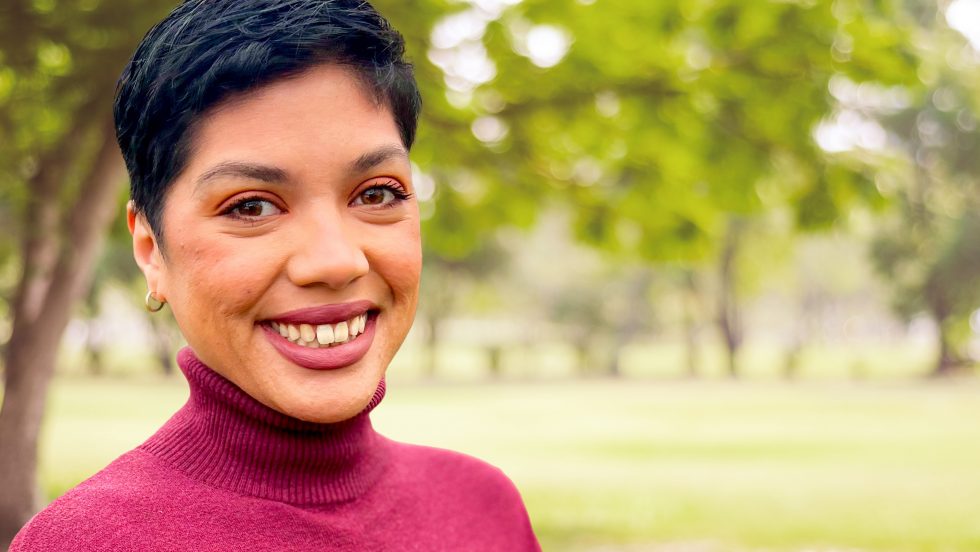
Michele Doubrava, a full-time working mother of two who is soon to be a psychiatric-mental health nurse practitioner, knows exactly what she wants to do with the master's degree she will receive from Adelphi in December 2022. She wants to dedicate her career to helping people suffering from severe mental illness.
Becoming a psychiatric-mental health nurse practitioner
Doubrava has spent the past decade as a nurse for Access: Supports for Living, a nonprofit in New York’s Hudson Valley that provides multiple services to families and individuals with disabilities and behavioral health issues.
At Access, Doubrava saw firsthand the need for healthcare professionals who can address the physical and mental health of patients. She also recognized that there is a need for professionals who can address depression, anxiety, addiction and trauma with an integrated approach that includes therapy and medication.
“I thought I would end up being a therapist when I went back to school for a master’s,” she said, “but I saw there was a shortage of prescribers for the individuals in our community. Knowing that a nurse practitioner could prescribe medication and be independent drew me in this direction.”
Doubrava came to Adelphi in 2020 to earn her master’s degree because of the University’s personalized approach. “I looked at several programs, but Adelphi was the first school to look beyond my transcripts, appreciate my career experience and see me as a whole person,” she said.
She also liked the flexibility of the hybrid program that only required her to be on campus one day a week, which allowed her to continue working full-time at Access. Still, squeezing in time for a master’s degree wasn’t easy. “Everybody at Adelphi was supportive, kind, smart and thoughtful,” she says. “It’s been a really great experience.”
A behavioral healthcare fellowship leads to a new career path
At Adelphi, Doubrava was a fellow in the Interdisciplinary Education and Training Experience (IDEATE) Fellowship program, which provides a year of specialized training in primary care settings that offer integrated behavioral healthcare services to children, adolescents and transitional youth in underserved New York communities. The program gives financial and academic support to 30 graduate students, 15 each from the School of Social Work and the College of Nursing and Public Health.
Doubrava served her fellowship at Access, exploring areas of care that were new to her. “It was wonderful for me to engage with a different network of professionals and learn new skills,” she said. “I learned that I really liked working with people who had severe and persistent mental illnesses like bipolar disorder and schizophrenia.”
She also likes the new role she’ll play as a nurse practitioner. “You feel a little bit more invested in their treatment as a prescriber,” she said. “I love being part of people’s stories and seeing their growth.”
A holistic approach to care
Her work goes beyond prescriptions, though. “The nurse practitioner specialty encourages a holistic perspective of the patient,” Doubrava explained. “So we are able to explore the social and environmental causes of health and wellness issues, not just the organic causes.”
IDEATE taught her how to find and create connections and strengthen her skills in collaboration and teamwork. She learned to excel in the area of care management, working with a team of providers to ensure that patients have access to the services and support networks that keep them healthy. And she enjoyed doing work that touched many areas of a patient’s life, from housing to food to medical care.
After graduation, she will continue working at Access as a psychiatric-mental health nurse practitioner.
“It’s difficult work,” Doubrava says. “At times you are dealing with people who are really struggling, and they often end up hospitalized or in jail. But my mother taught me it was important to give back to the community. Not a lot of people are willing to do this work, so that’s why I do it.”